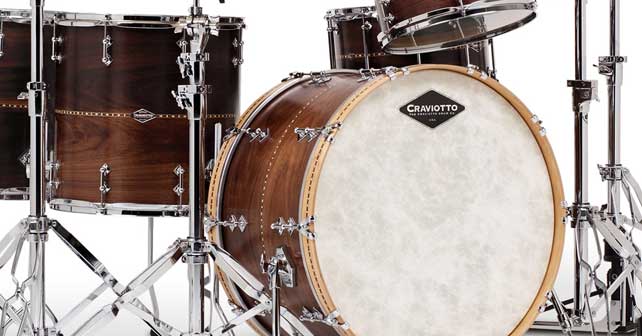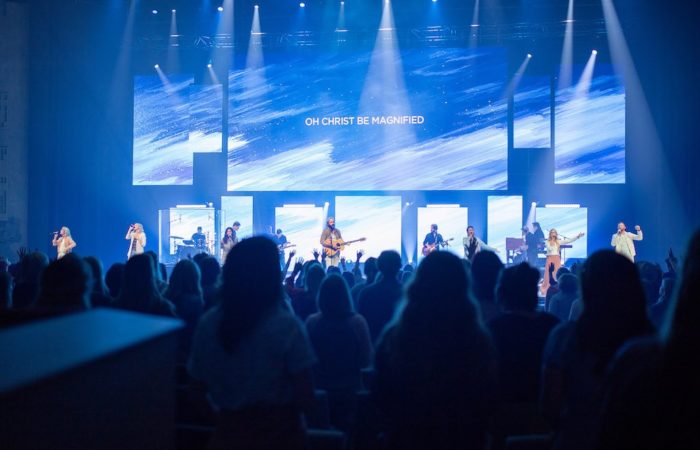Occasionally my worship leader friends ask me what kind of drums and cymbals they should buy for their church. Even though I’ve covered this subject a bit in my Worship Drums Guide it’s a question worth answering again because there are so many brands and options.
So where to begin? Let’s start by asking what kind of church sanctuary you have before you buy your church’s first drum kit. There are many shapes, sizes and floor surfaces of church sanctuaries that I’ve played in over the years that require the appropriate types of drums and cymbals to keep your sound guy happy. You have to be honest with yourself and ask “do I just want to rock out?” or “do I want to buy the right drums that would be the most beneficial for church worship?” Would the age of your congregation, design of your sanctuary, size of your soundboard and size of your church benefit more from real drums or electric drums?
Electric Drums
An electric drum kit is usually the first place a more traditional church goes when they move to a contemporary service. The electric kit is a very practical solution for easing an older crowd into drums in the sanctuary and the volume level is also easily controlled. The only downside to electric kits have been the drum samples – especially cymbals. But with more and more drum sample libraries entering the music software market we’re starting to hear some incredible drum samples. The only problem is most electronic kits on the market do not have these quality samples… yet. I believe they will in the future with more research and development. There’s a way to incorporate better drum sample libraries into your electronic kit which I cover in the Worship Drums Guide. I also feel a lot of churches probably will not know the difference and the stock samples in your electric kit should do the job.
The Benefits of Electric Drums
The biggest benefits of electric drums are containment, minimal input usage and volume control. If you’re just using the stock sounds from your electric kit’s brain then all you need are 2 inputs for your whole drum mix. That certainly makes things easy on the sound man especially if you’re a smaller church with a smaller soundboard. The electronic kits are also easy to move and live on a smaller stage. They don’t take up a lot of space and you don’t need a drum shield to tone down the volume.
There’s only one electronic kit I recommend and it’s any of the Roland electric kits from the TD-KV series and all the lines that go up in price from it. They range from $1500 to $7500. I like the Roland kits because of the real swivel of the cymbals when you hit them and the mesh heads of the drums. I also think their sounds are great and the integration of any outside midi is easy to patch in. For me, the feel of the Roland kits have been the best. You can also add the Roland SPD-30 pad and trigger loops or more auxiliary sounds.
Real Drums
You’ll have to experiment to see if real drums work for your room and congregation. You might want to either start with a drum shield or add it later if your drums are too loud. A drum shield will take getting used to for your drummer and worship team and requires its own set of rules. I have played drums with no drum shields in small rooms and it’s worked just fine. Of course this approach takes some major restraint on a drummer’s part to not overplay and hold back in volume.
Drum shields make sense in the older sanctuaries because they were built for choirs, organs and to amplify unplugged sound from the stage. Drums are naturally going to be boomy and overpowering in an older church building.
The Benefits of Real Drums
I prefer to play real drums over electric drums any day of the week. I also notice a difference in energy from the stage when the band plays with real drums. Even if your whole band is using in-ear monitors the drums are still live and loud. I also think real drums sound the best. It takes a great sound man to know the room, right equipment, and right mics in order to pull off a great live drum sound.
Next week I’ll share my favorite drums and cymbals.
Jon Skaggs has played drums for Christian artists like Brandon Heath, Chris Sligh and Nichole Nordeman, is a music producer, clinician, and author of the Worship Drums Guide. Visit his website at www.jonskaggs.net.





